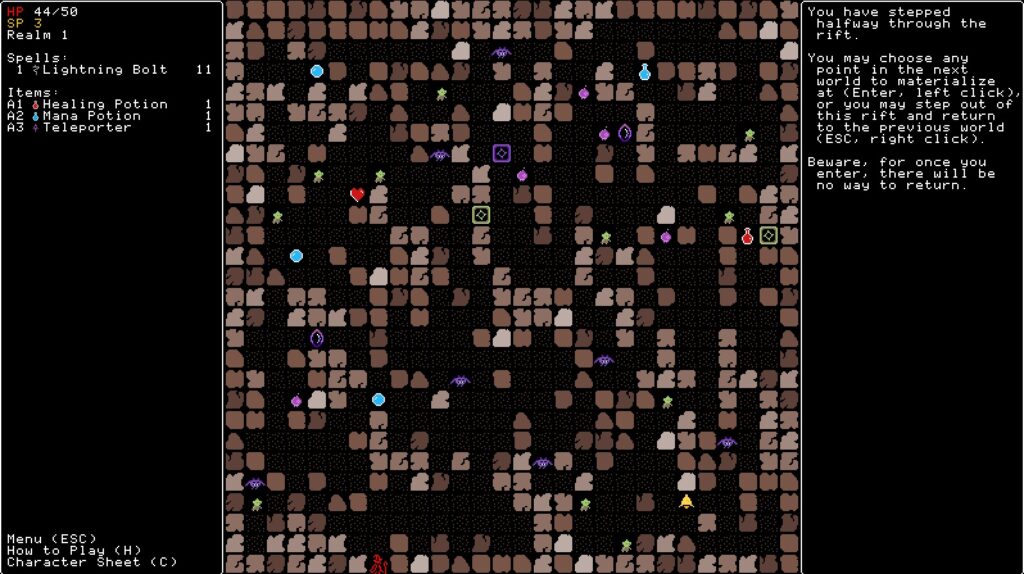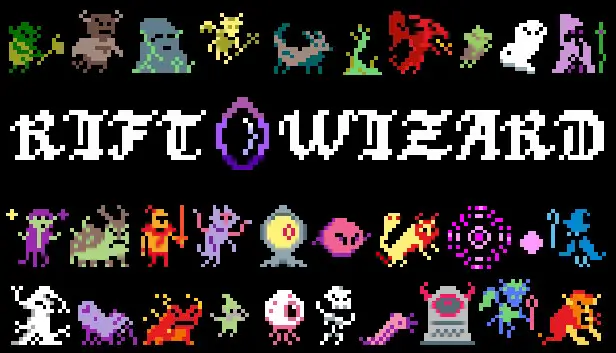The gaming industry loves buzzwords. From metroidvania to roguelike – these all went from being useful terms by which players could identify their favorite quirks of a genre, to simple marketing slogans. Yet, there are games that deserve their advertising, recreating some exact kind of nostalgic experience in a way that goes beyond just game mechanics. Rift Wizard is one of these. It seeks to entice the traditional roguelike community, not just with gameplay, but with aesthetics, too.
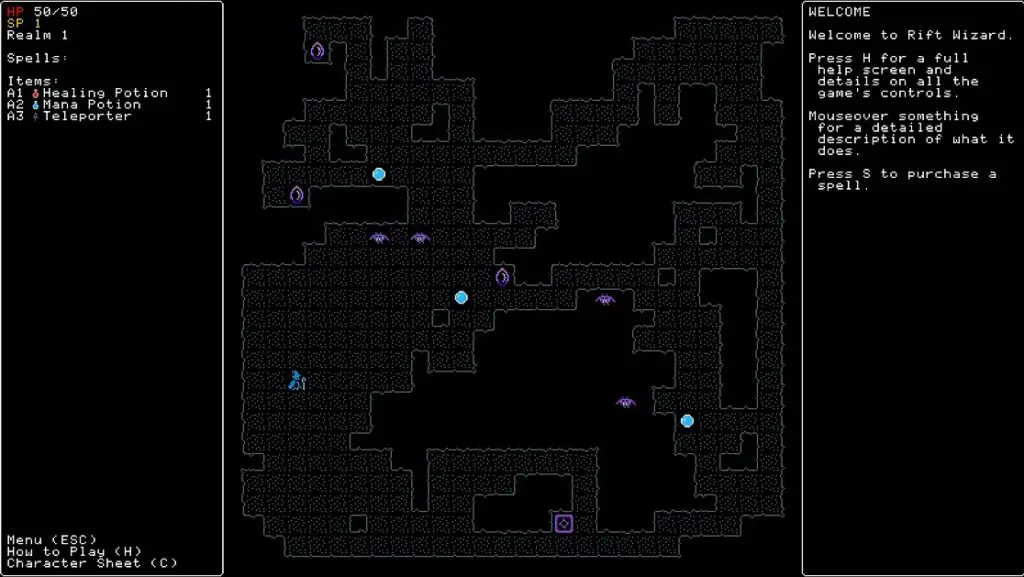
ROGUELIKE, NOT JUST MARKETING
Rift Wizard distills the roguelike experience to such a degree that it could pass for one of the 80s classics. There isn’t much plot here. The player will inhabit the cape of a wizard, who’s forgotten all his spells and has to rebuild his repertoire from scratch, slaying monsters along the way. Complete the 24 levels, kill the final enemy, Mordred, and you win.
The game, developed by Dylan White, present the player with a series of procedurally generated challenges. Each differs from the last, with odds sometimes (well, quite often, actually) not in the wizard’s favor. But, I guess that’s life, isn’t it? The goal is always the same, though: defeat the opposition and leave through one of the rift doors.
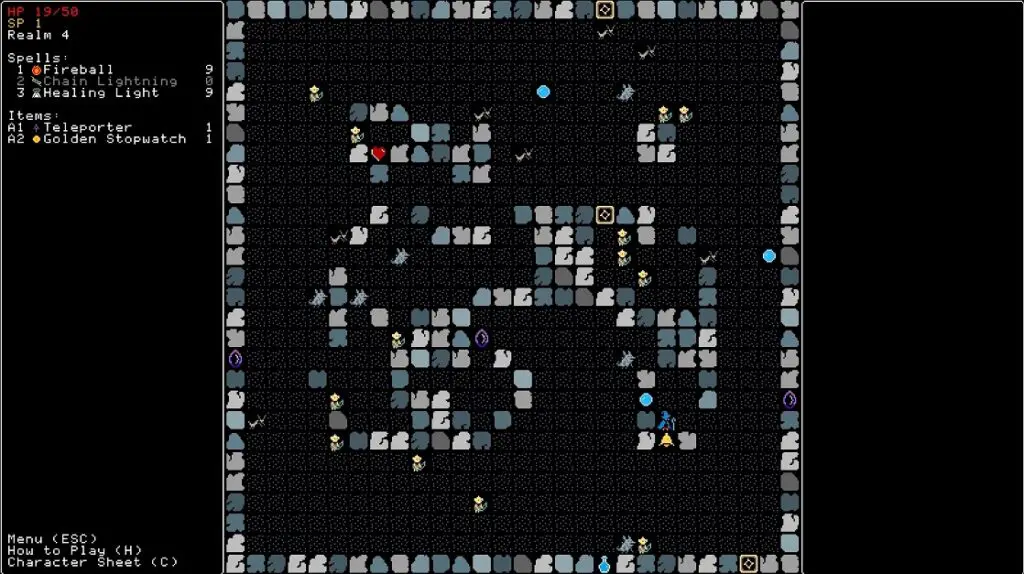
GATHER UP YOUR SPELLS
At the start of each match, the wizard gets a few spell points, or SP. These are used to learn the first incantation, usually an offensive one, like a fireball or an icicle. Each spell belongs to a different school, be that of Fire, Water, or Metal. Those, of the conjuration variety, are used to summon creatures that’ll fight in your stead. Each spell, regardless of its type, has unique advantages and disadvantages. All of them have a limited number of uses, however. When these are depleted, the player’s left with two choices. Either visit a portal, which don’t exist on some levels, or use a magic-restoring potion, that complements the standard healing one.
The game offers multiple skills, used to specialize in a particular kind of spells. These, however, take more time to learn, requiring levels, gained by killing numerous enemies. Potions aren’t the only type of items in Rift Wizard, either. There are also teleporters: tickets to escape a tight situation, or quickly traverse some level.
The main feature of the game, however, is its massive library of spells. Such impressive variety allows a great degree of freedom in building, or rather rebuilding, the wizard’s magical powers to their full might. In some runs, the player may create a tank-like character with ultra-strong lightning spells. In others, one who’s better at defense and will just hang back, letting his minions do the dirty work. It could be interesting to see a bit more customization, like sacrificing health for stronger spells, for example. Yet, as far as its simple mechanics go, Rift Wizard covers all its bases, with great attention to detail.
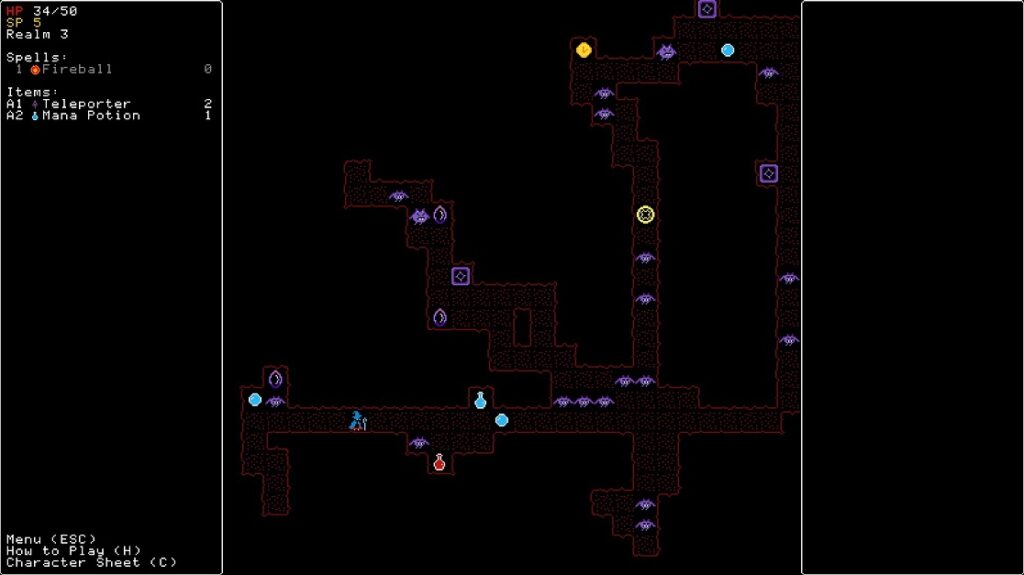
SWIFT TURN-BASED ACTION
Rift Wizard is turn-based. As such, it’s always possible to take a breather and plan ahead. Although it can seemingly transform into a full-on action game, as continuous movement is, indeed, possible by just keeping the wizard in motion. The player can choose between keyboard and mouse for controls. I, however, have found the best system to be a combination of both. Numeric keypad for movement, mouse for the menu and attacking. The game also provides a number of useful keyboard shortcuts. Like pressing the ‘a’ key, to quickly gather items, after the completion of a level.
The roguelike moniker usually calls for high difficulty, along with permadeath. Rift Wizard meets all expectations on this one, proving a great challenge all the way through. The fact that it has procedurally generated levels means that the players will have no idea what sort of foes they’ll face in the next challenge. While the enormous spellbook offers no clue as to the best way to defeat these.
The enemies roster also presents an incredible variety. While mostly inspired by D&D, it still offers its unique spin on things. For example, the fatty version of the bat seems almost a direct reference to The Binding of Issac. While the vampire, once killed, turns into a bat and soon restores its original undead form, unless it’s swiftly disposed of.
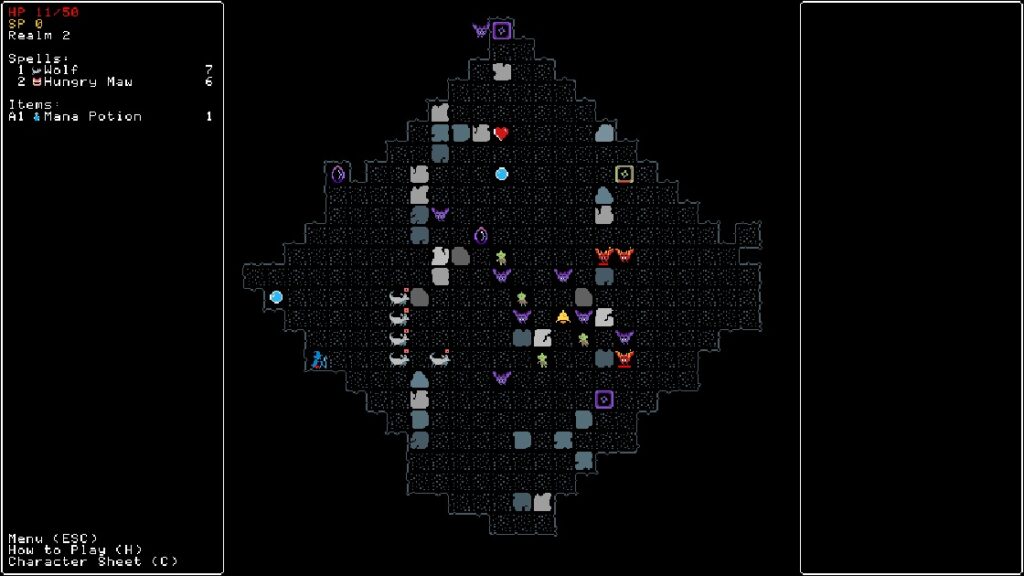
Complementing the usual single-player campaign are a couple of other modes. Namely, the Archmage Trials and the weekly runs. The latter are easy to explain, being challenges conducted on a weekly basis, rated based on points. The toughest one is, indeed, only for the bravest of the brave. It makes each run that much harder by adding more monsters or randomly removing some available spells.
Aesthetically, I find Rift Wizard a delight. I have become increasingly bored with the omnipresent 8-bit faux-NES graphics, found everywhere, the last few years. The game’s basic sprites and a blocky map seem incredibly refreshing in comparison. This really hearkens back to that simple and classic style of early 90s games, like Valhalla. Not to forget the great choice of font! The soundtrack is minimal, but pretty well-done. It has a kind of dungeon synth vibe, very appropriate for the genre. Although, it can become repetitive for longer playthroughs. Definitely a case of BYOS: Bring Your Own Soundtrack.
